Irritable Bowel Syndrome
How to submit an article:
- Registered users can submit any published journal article that has a unique DOI (Digital Object Identifier) name or link to Research Hub.
- For example, you can paste the full DOI link:
https://doi.org/10.1109/5.771073or just the DOI name:10.1109/5.771073into the field above and click submit. - The person who is first to submit a valid article to Research Hub will forever be credited for it, and every article submission earns you +6 Research Points.
Also known as: IBS
Related Topics
Published research studies are articles that present the findings of original research that has undergone a peer-review process and has been made publicly available in scholarly journals, books or other media.
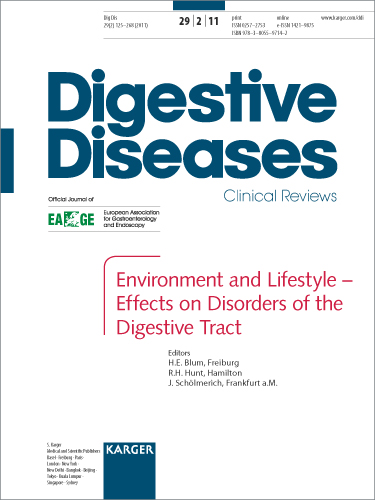
Menthacarin, a proprietary peppermint oil and caraway oil combination, improves multiple complaints in patients with functional gastrointestinal disorders – a systematic review and meta-analysis
2022 Dec 09 Digestive Diseases Madisch A, Frieling T, Zimmermann A, Hollenz M, Labenz J, Stracke B, et al.
Systematic Review Meta-Analysis CarawayMenthacarin, derived from peppermint and caraway oil, effectively reduces symptoms, offers a safe alternative to risky drugs like cisapride, and shows promise for managing stomach problems in primary care.
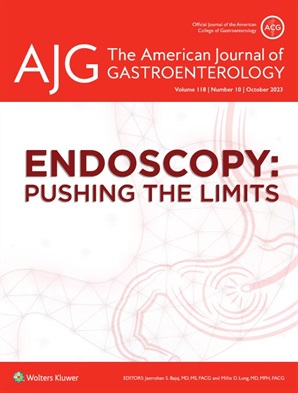
Consumption of 2 Green Kiwifruits Daily Improves Constipation and Abdominal Comfort—Results of an International Multicenter Randomized Controlled Trial
2022 Dec 20 American Journal of Gastroenterology Gearry R, Fukudo S, Barbara G, Kuhn-Sherlock B, Ansell J, Blatchford P, et al.
Randomised Controlled Trial Constipation Kiwifruit Irritable Bowel SyndromeConsuming green kiwifruits is associated with a clinically relevant increase of ≥ 1.5 complete spontaneous bowel movements per week in those experiencing constipation.

External therapy of traditional Chinese medicine for treating irritable bowel syndrome with diarrhea: A systematic review and meta-analysis
2022 Aug 09 Frontiers in Medicine Wei X, Wen Y, Wei Y, Liang X, Ma X, Zhang B, et al.
Systematic Review Meta-Analysis Irritable Bowel Syndrome Diarrhoea Chinese MedicineTraditional Chinese medicine therapies, like acupuncture and moxibustion, effectively alleviate irritable bowel syndrome with diarrhea symptoms, and reduce recurrence rates.
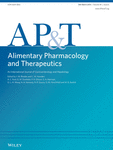
Systematic review and meta‐analysis: efficacy of peppermint oil in irritable bowel syndrome
2022 Aug 09 Alimentary Pharmacology & Therapeutics Ingrosso MR, Ianiro G, Nee J, Lembo AJ, Moayyedi P, Black CJ, et al.
Systematic Review Meta-Analysis Irritable Bowel Syndrome Peppermint OilPeppermint oil proved more effective than placebo in treating irritable bowel syndrome symptoms, but with an increased rate of adverse events.

Biomarkers of Metabolomics in Inflammatory Bowel Disease and Damp-Heat Syndrome: A Preliminary Study
2022 Jul 01 Evidence-Based Complementary and Alternative Medicine Wu X, Liu K, Wu Q, Wang M, Chen X, Li Y, et al.
In this study, we found that several metabolites of aromatic acids and lipid derivatives could act as potential biomarkers to discriminate IBD from healthy controls. Glycerophospholipids metabolites might be used to differentiate IBD-DH from IBD-SD.
Network Pharmacology Irritable Bowel SyndromeResearch insights are moderated by the Research Hub team and offer an at-a-glance overview of interesting research findings.

2022 American Journal of Gastroenterology
Consuming green kiwifruits is associated with a clinically relevant increase of ≥ 1.5 complete spontaneous bowel movements per week in those experiencing constipation.
Randomised Controlled Trial Constipation Kiwifruit
Consumption of 2 Green Kiwifruits Daily Improves Constipation and Abdominal Comfort—Results of an International Multicenter Randomized Controlled Trial
Gearry R, Fukudo S, Barbara G, Kuhn-Sherlock B, Ansell J, Blatchford P, et al.

2022 Digestive Diseases
Menthacarin, derived from peppermint and caraway oil, effectively reduces symptoms, offers a safe alternative to risky drugs like cisapride, and shows promise for managing stomach problems in primary care.
Systematic Review Caraway
Menthacarin, a proprietary peppermint oil and caraway oil combination, improves multiple complaints in patients with functional gastrointestinal disorders – a systematic review and meta-analysis
Madisch A, Frieling T, Zimmermann A, Hollenz M, Labenz J, Stracke B, et al.

2022 Alimentary Pharmacology & Therapeutics
Peppermint oil proved more effective than placebo in treating irritable bowel syndrome symptoms, but with an increased rate of adverse events.
Systematic Review Peppermint Oil
Systematic review and meta‐analysis: efficacy of peppermint oil in irritable bowel syndrome
Ingrosso MR, Ianiro G, Nee J, Lembo AJ, Moayyedi P, Black CJ, et al.

2022 Frontiers in Medicine
Traditional Chinese medicine therapies, like acupuncture and moxibustion, effectively alleviate irritable bowel syndrome with diarrhea symptoms, and reduce recurrence rates.
Systematic Review Chinese Medicine Diarrhoea
External therapy of traditional Chinese medicine for treating irritable bowel syndrome with diarrhea: A systematic review and meta-analysis
Wei X, Wen Y, Wei Y, Liang X, Ma X, Zhang B, et al.
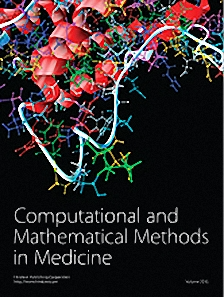
2022 Computational and Mathematical Methods in Medicine
Acupuncture combined with moxibustion showed the best outcomes in terms of efficacy and quality of life improvement for adults with irritable bowel syndrome complicated with diarrhea.
Meta-Analysis Acupuncture Moxibustion
Acupuncture and Moxibustion in the Treatment of Adult Diarrhea Irritable Bowel Syndrome: A Network Meta-analysis
Jiang X, Guo X, Zhou J, Ye S
Review Articles
Review articles summarise and critically evaluate the current state of research on a specific topic or field by synthesising multiple primary research studies.

Menthacarin, a proprietary peppermint oil and caraway oil combination, improves multiple complaints in patients with functional gastrointestinal disorders – a systematic review and meta-analysis
2022 Dec 09 Digestive Diseases Madisch A, Frieling T, Zimmermann A, Hollenz M, Labenz J, Stracke B, et al.
Systematic Review Meta-Analysis CarawayMenthacarin, derived from peppermint and caraway oil, effectively reduces symptoms, offers a safe alternative to risky drugs like cisapride, and shows promise for managing stomach problems in primary care.

External therapy of traditional Chinese medicine for treating irritable bowel syndrome with diarrhea: A systematic review and meta-analysis
2022 Aug 09 Frontiers in Medicine Wei X, Wen Y, Wei Y, Liang X, Ma X, Zhang B, et al.
Systematic Review Meta-Analysis Irritable Bowel Syndrome Diarrhoea Chinese MedicineTraditional Chinese medicine therapies, like acupuncture and moxibustion, effectively alleviate irritable bowel syndrome with diarrhea symptoms, and reduce recurrence rates.

Systematic review and meta‐analysis: efficacy of peppermint oil in irritable bowel syndrome
2022 Aug 09 Alimentary Pharmacology & Therapeutics Ingrosso MR, Ianiro G, Nee J, Lembo AJ, Moayyedi P, Black CJ, et al.
Systematic Review Meta-Analysis Irritable Bowel Syndrome Peppermint OilPeppermint oil proved more effective than placebo in treating irritable bowel syndrome symptoms, but with an increased rate of adverse events.
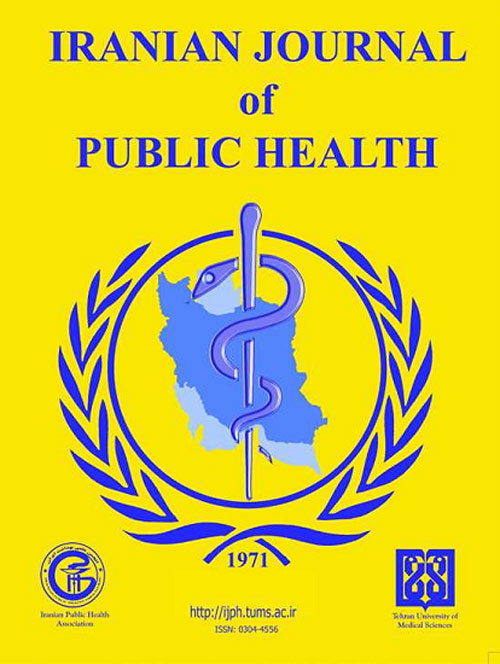
Turmeric for Treatment of Irritable Bowel Syndrome: A Systematic Review of Population-Based Evidence
2022 Jun 14 Iranian Journal of Public Health Jafarzadeh E, Shoeibi S, Bahramvand Y, Nasrollahi E, Maghsoudi AS, Yazdi F, et al.
Systematic Review Irritable Bowel SyndromeThe application of curcumin and turmeric, due to their anti-inflammatory effects, can alleviate symptoms and improve the quality of life in people with irritable bowel syndrome.
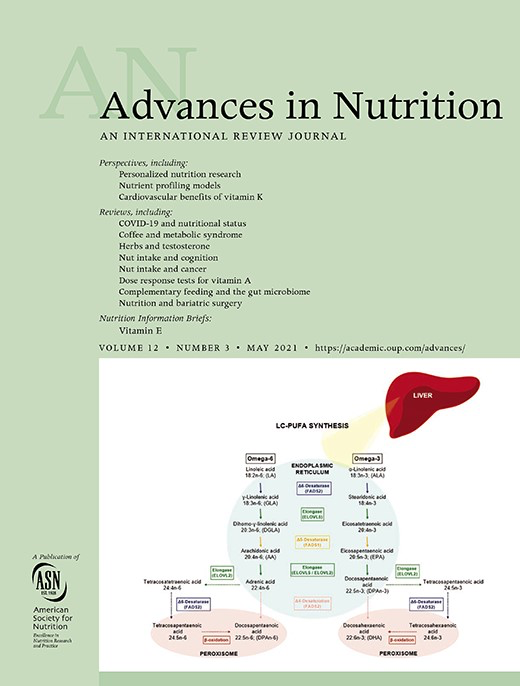
Habitual Green Kiwifruit Consumption Is Associated with a Reduction in Upper Gastrointestinal Symptoms: A Systematic Scoping Review
2022 May Advances in Nutrition Bayer SB, Frampton CM, Gearry RB, Barbara G
Review Article Irritable Bowel Syndrome KiwifruitConsuming kiwifruit, particularly the green variety, can effectively alleviate upper gastrointestinal symptoms like abdominal discomfort, pain, and indigestion.
Clinical Trials
Clinical trials are research studies that involve people and are conducted to evaluate the safety and efficacy of new treatments or interventions, such as drugs, medical devices, or behavioural therapies.

Consumption of 2 Green Kiwifruits Daily Improves Constipation and Abdominal Comfort—Results of an International Multicenter Randomized Controlled Trial
2022 Dec 20 American Journal of Gastroenterology Gearry R, Fukudo S, Barbara G, Kuhn-Sherlock B, Ansell J, Blatchford P, et al.
Randomised Controlled Trial Constipation Kiwifruit Irritable Bowel SyndromeConsuming green kiwifruits is associated with a clinically relevant increase of ≥ 1.5 complete spontaneous bowel movements per week in those experiencing constipation.
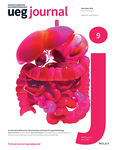
A trial‐based economic evaluation of peppermint oil for the treatment of irritable bowel syndrome
2021 Sep United European Gastroenterology Journal Weerts ZZRM, Essers BAB, Jonkers DMAE, Willems JIA, Janssen DJPA, Witteman BJM, et al.
Randomised Controlled Trial Peppermint Oil Peppermint Irritable Bowel SyndromeSmall-intestinal release peppermint oil is a cost-effective treatment for Irritable Bowel Syndrome, yielding modest quality of life gains and relieving abdominal pain.

Peppermint Oil Treatment for Irritable Bowel Syndrome: A Randomized Placebo-Controlled Trial
2021 Jul 28 American Journal of Gastroenterology Nee J, Ballou S, Kelley JM, Kaptchuk TJ, Hirsch W, Katon J, et al.
Randomised Controlled Trial Irritable Bowel Syndrome Peppermint OilPeppermint oil and a placebo both exhibited substantial improvement in relieving symptoms of irritable bowel syndrome, without any significant differences between them.

Written expressive disclosure in adults with irritable bowel syndrome: A randomized controlled trial
2021 May Complementary Therapies in Medicine Laird KT, Stanton AL
Writing about one's deepest thoughts and feelings about IBS may increase pain self-efficacy and reduce healthcare utilization compared to control writing in adults with IBS.
Randomised Controlled Trial Written Expressive Disclosure
The Effects on Immune Function and Digestive Health of Consuming the Skin and Flesh of Zespri® SunGold Kiwifruit (Actinidia Chinensis var. Chinensis ‘Zesy002’) in Healthy and IBS-Constipated Individuals
2020 May 18 Nutrients Eady SL, Wallace AJ, Hedderley DI, Bentley-Hewitt KL, Butts CA
Randomised Controlled Trial Clinical Study Irritable Bowel Syndrome Constipation KiwifruitEating whole SunGold kiwifruits, both with and without skin, can significantly decrease gut inflammation and alleviate constipation for both healthy people and those with irritable bowel syndrome.
Study Protocols
Published study protocols are detailed plans that outline the objectives, methodology, statistical analyses, and organisation of a research study that have been made publicly available for others to review and use as a reference.

Moxibustion for diarrhea-predominant irritable bowel syndrome
2021 Dec 23 Medicine Dong T, Li X, Ma X, Xue X, Hou Y, Liu Y, et al.
This study will provide evidence for whether moxibustion therapy is beneficial to the treatment of human diarrhea-predominant irritable bowel syndrome.
Study Protocol Diarrhoea Irritable Bowel Syndrome
Xiaoyao-san, a traditional Chinese herbal formula, for the treatment of irritable bowel syndrome
2021 Mar 12 Medicine Lee JH, Sung WS, Kim EJ, Kim YW
This review will further support the evidence-based usage of Xiaoyao-san (XYS) for irritable bowel syndrome (IBS) treatment.
Study Protocol Xiao Yao San
Xiaoyao-san, a traditional Chinese herbal formula, for the treatment of irritable bowel syndrome
2021 Mar 12 Medicine Lee JH, Sung WS, Kim EJ, Kim YW
This review will further support the evidence-based usage of Xiaoyao-san (XYS) for irritable bowel syndrome (IBS) treatment.
Study Protocol Xiao Yao SanPresentation Slides

Randomised Controlled Trial
Consuming green kiwifruits is associated with a clinically relevant increase of ≥ 1.5 complete spontaneous bowel movements per week in those experiencing constipation.
Gearry R, Fukudo S, Barbara G, Kuhn-Sherlock B, Ansell J, Blatchford P, Eady S, Wallace A, Butts C, Cremon C, Barbaro MR, Pagano I, Okawa Y, Muratubaki T, Okamoto T, Fuda M, Endo Y, Kano M, Kanazawa M, Nakaya N, Nakaya K, Drummond L

Systematic Review
Menthacarin, derived from peppermint and caraway oil, effectively reduces symptoms, offers a safe alternative to risky drugs like cisapride, and shows promise for managing stomach problems in primary care.
Madisch A, Frieling T, Zimmermann A, Hollenz M, Labenz J, Stracke B, Miehlke S

Systematic Review
Peppermint oil proved more effective than placebo in treating irritable bowel syndrome symptoms, but with an increased rate of adverse events.
Ingrosso MR, Ianiro G, Nee J, Lembo AJ, Moayyedi P, Black CJ, Ford AC

Systematic Review
Traditional Chinese medicine therapies, like acupuncture and moxibustion, effectively alleviate irritable bowel syndrome with diarrhea symptoms, and reduce recurrence rates.
Wei X, Wen Y, Wei Y, Liang X, Ma X, Zhang B, Tang X

Meta-Analysis
Acupuncture combined with moxibustion showed the best outcomes in terms of efficacy and quality of life improvement for adults with irritable bowel syndrome complicated with diarrhea.
Jiang X, Guo X, Zhou J, Ye S

Systematic Review
The application of curcumin and turmeric, due to their anti-inflammatory effects, can alleviate symptoms and improve the quality of life in people with irritable bowel syndrome.
Jafarzadeh E, Shoeibi S, Bahramvand Y, Nasrollahi E, Maghsoudi AS, Yazdi F, KarkonShayan S, Hassani S

Review Article
Consuming kiwifruit, particularly the green variety, can effectively alleviate upper gastrointestinal symptoms like abdominal discomfort, pain, and indigestion.
Bayer SB, Frampton CM, Gearry RB, Barbara G

Systematic Review
Xiao Yao San can improve symptoms and reduce recurrence rates in patients with disorders of gut-brain interaction.
Liu Q, Shi Z, Zhang T, Jiang T, Luo X, Su X, Yang Y and Wei W

Randomised Controlled Trial
Small-intestinal release peppermint oil is a cost-effective treatment for Irritable Bowel Syndrome, yielding modest quality of life gains and relieving abdominal pain.
Weerts ZZRM, Essers BAB, Jonkers DMAE, Willems JIA, Janssen DJPA, Witteman BJM, Clemens CHM, Westendorp A, Masclee AAM, Keszthelyi D

Randomised Controlled Trial
Peppermint oil and a placebo both exhibited substantial improvement in relieving symptoms of irritable bowel syndrome, without any significant differences between them.
Nee J, Ballou S, Kelley JM, Kaptchuk TJ, Hirsch W, Katon J, Cheng V, Rangan V, Lembo A, Iturrino J
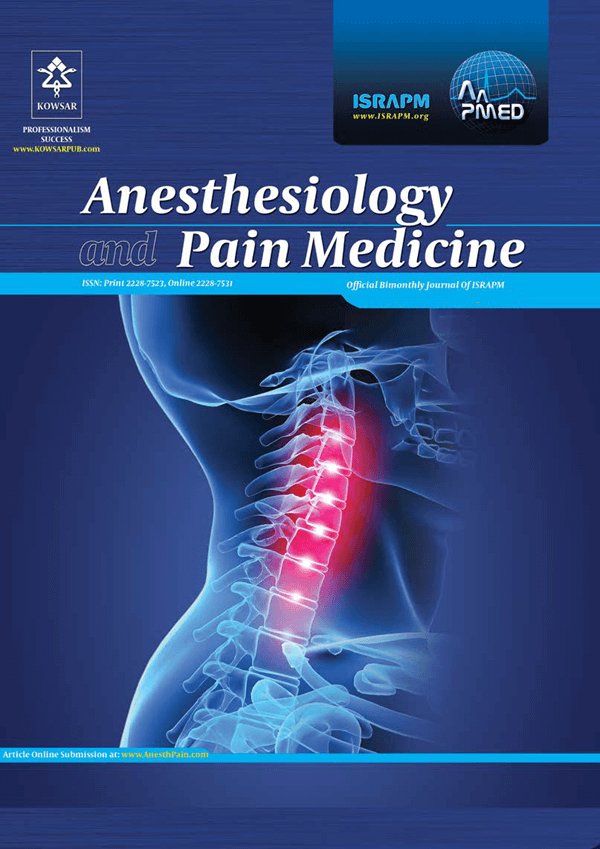
Review Article
Acupuncture is shown to be a beneficial supplementary treatment for chronic abdominal pain, improving patients' quality of life and cutting healthcare costs.
Berger AA, Liu Y, Jin K, Kaneb A, Welschmeyer A, Cornett EM, Kaye AD, Imani F, Khademi SH, Varrassi G, Viswanath O, Urits I

Review Article
Acupuncture has shown promise as a complementary approach in treating chronic abdominal pain, providing symptom relief and improving quality of life.
Berger AA, Liu Y, Jin K, Kaneb A, Welschmeyer A, Cornett EM, Kaye AD, Imani F, Khademi SH, Varrassi G, Viswanath O, Urits I
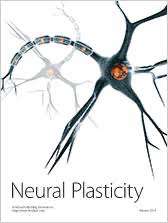
Systematic Review
Acupuncture treatment can improve the clinical effectiveness of diarrhea-predominant irritable bowel syndrome or functional diarrhea.
Jianbo Guo, Xiaoxiao Xing, Jiani Wu, Hui Zhang, Yongen Yun, Zongshi Qin, and Qingyong He

Randomised Controlled Trial
Eating whole SunGold kiwifruits, both with and without skin, can significantly decrease gut inflammation and alleviate constipation for both healthy people and those with irritable bowel syndrome.
Eady SL, Wallace AJ, Hedderley DI, Bentley-Hewitt KL, Butts CA
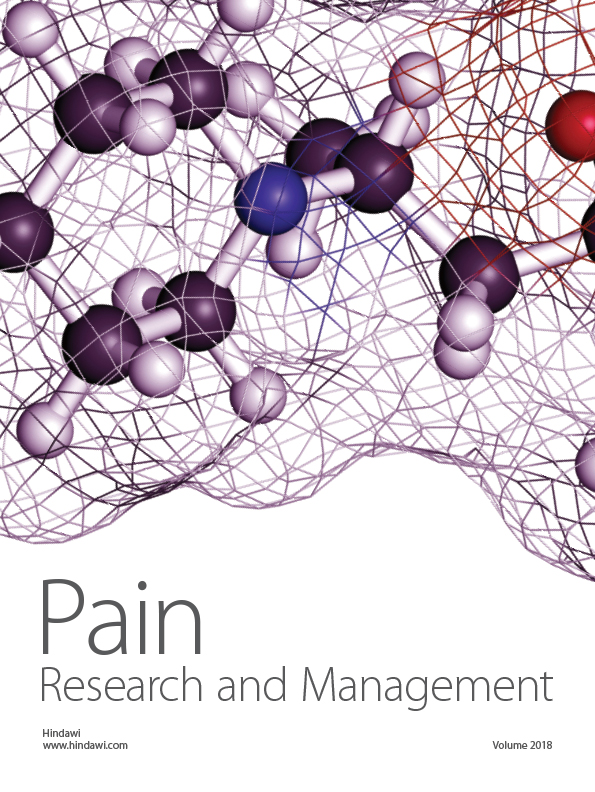
Systematic Review
Acupuncture could be used as an adjunct in clinical settings to improve efficacy of western medicine for irritable bowel syndrome.
Zheng H, Chen R, Zhao X, Li G, Liang Y, Zhang H, Chi Z
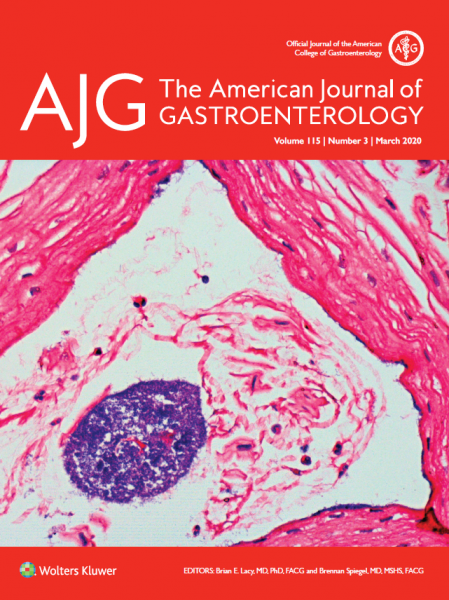
Systematic Review
Peppermint oil significantly reduces colonic spasm during colonoscopy, but does not affect the adenoma detection rate or cecal intubation time.
Nehme, Fredy; Al Momani, Laith; Alomari, Mohammad ; Zafar, Yousaf

Systematic Review
Peppermint oil has been shown to be a safe and effective treatment for pain and overall symptoms in adults suffering from irritable bowel syndrome.
Alammar N, Wang L, Saberi B, Nanavati J, Holtmann G, Shinohara RT, Mullin GE

Systematic Review
Acupuncture may improve diarrhoea-predominant irritable bowel syndrome better than drugs and has the fewest side effects.
Zhu L, Ma Y, Ye S, Shu Z

Clinical Study
Drinking alkaline-reduced water can improve the quality of life in patients suffering from diarrhea-predominant irritable bowel syndrome.
Shin DW, Yoon H, Kim HS, Choi YJ, Shin CM, Park YS, Kim N, Lee DH

Systematic Review
Chinese herbal medicines showed greater improvement in terms of clinical efficacy in the treatment of irritable bowel syndrome with constipation than cisapride and mosapride.
Dan-yan Li , Yun-kai Dai , Yun-zhan Zhang, Meng-xin Huang, Ru-liu Li, Jia Ou-yang, Wei-jing Chen, Ling Hu

Review Article
Kiwifruits can relieve constipation and irritable bowel syndrome, potentially through protease-activated signaling, modulation of microflora, changes in colonic methane, bile flux, or mediation of inflammatory processes.
Bayer SB, Gearry RB, Drummond LN

Meta-Analysis
The study indicates a positive link between Irritable Bowel Syndrome (IBS) and Blastocystis infection, with no such association found for Dientamoeba fragilis infection.
Rostami A, Riahi SM, Haghighi A, Saber V, Armon B, Seyyedtabaei SJ
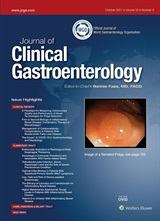
Systematic Review
Peppermint oil is a safe and effective short-term treatment for irritable bowel syndrome.
Khanna, Reena ; MacDonald, John K. ; Levesque, Barrett G.
Executive Summary
Write an executive summary in the form of a blog article on the topic of "Research into Chinese medicine treatment for Irritable Bowel Syndrome" summarising the research below and using language that can be easily understood by patients and avoiding medical jargon using a professional and caring tone of voice.
Write an executive summary in the form of a blog article on the topic of "Researched Chinese medicine treatments for Irritable Bowel Syndrome" summarising the research below in an objective and easy to understand way, and using language that can be easily understood by patients. Group the article into Chinese medicine treatments first, followed by nutrition and other treatments. Avoid using medical jargon and use a professional and caring tone of voice.
Write me a concise but easy to understand executive summary on the topic of "Chinese medicine treatments for Irritable Bowel Syndrome" based on the following research that I will give you. Your summary should be 2 paragraphs long in Australian English spelling and include references to the studies.
A Randomised Controlled Trial published in 2022 in the journal American Journal of Gastroenterology found that Consuming green kiwifruits is associated with a clinically relevant increase of ≥ 1.5 complete spontaneous bowel movements per week in those experiencing constipation. Participants included healthy controls (n = 63), patients with functional constipation (FC, n = 60), and patients with constipation-predominant irritable bowel syndrome (IBS-C, n = 61) randomly assigned to consume 2 green kiwifruits or psyllium (7.5 g) per day for 4 weeks, followed by a 4-week washout, and then the other treatment for 4 weeks. The primary outcome was the number of complete spontaneous bowel movements (CSBM) per week. Secondary outcomes included GI comfort which was measured using the GI symptom rating scale, a validated instrument. Data (intent-to-treat) were analyzed as difference from baseline using repeated measures analysis of variance suitable for AB/BA crossover design. Consumption of green kiwifruit was associated with a clinically relevant increase of ≥ 1.5 CSBM per week (FC; 1.53, P < 0.0001, IBS-C; 1.73, P = 0.0003) and significantly improved measures of GI comfort (GI symptom rating scale total score) in constipated participants (FC, P < 0.0001; IBS-C, P < 0.0001). No significant adverse events were observed.
A Systematic Review published in 2022 in the journal Digestive Diseases found that Menthacarin, derived from peppermint and caraway oil, effectively reduces symptoms, offers a safe alternative to risky drugs like cisapride, and shows promise for managing stomach problems in primary care. Menthacarin works well in reducing symptoms like pain and bloating. It is safe and could be an alternative to other drugs like cisapride, which can be risky. This herbal treatment seems useful for stomach problems in primary care, but more research is needed. In short, Menthacarin, made from peppermint and caraway oil, is a safe and effective option for stomach issues in primary care.
A Systematic Review published in 2022 in the journal Alimentary Pharmacology & Therapeutics found that Peppermint oil proved more effective than placebo in treating irritable bowel syndrome symptoms, but with an increased rate of adverse events. In evaluating the effectiveness and safety of peppermint oil for irritable bowel syndrome, the researchers searched medical literature for randomised controlled trials involving peppermint oil treatments in IBS. A systematic review and analysis included trials up to the date of April 2nd, 2022. The team assessed the efficacy and safety of the peppermint oil treatment based on various factors including effect on global IBS symptoms and abdominal pain along with incidence of adverse events or gastro-oesophageal reflux. From the literature review, 10 suitable randomised control trials were identified, encompassing a total of 1030 patients. The results showed that peppermint oil performed better than a placebo in lessening overall irritable bowel syndrome symptoms and reducing abdominal pain. However, this was coupled with a higher rate of recorded adverse events in patients who were administered peppermint oil. Despite the positive performance of peppermint oil over placebo, the evidence quality considered for this conclusion was very low.
A Systematic Review published in 2022 in the journal Frontiers in Medicine found that Traditional Chinese medicine therapies, like acupuncture and moxibustion, effectively alleviate irritable bowel syndrome with diarrhea symptoms, and reduce recurrence rates. Adhering to the guidelines for systematic reviews, multiple databases including PubMed and Cochrane Library, and several Chinese databases were thoroughly searched. The focus was randomized controlled trials that compared traditional Chinese external therapies with western medicine for irritable bowel syndrome with diarrhea up until the end of 2021. Two authors were independently responsible for screening, data extraction and study assessment. Study quality assessment involved both the Jadad scale and Cochrane Collaborative's risk of bias tool. Meta-analysis was performed on the data collated using Review Manager software. The gathered data revealed that of the twenty-one studies examined, including a total of 1,862 subjects, acupuncture and moxibustion were the most prevalent external therapies. The results of the meta-analysis indicated that in comparison to the control group, the experimental group demonstrated marked improvement. Notably, the experimental group had superior clinical effectiveness rates, better clinical cure rates, and reduced recurrence. Additionally, there was significant improvement in irritable bowel syndrome related quality of life within the experimental group. Despite these promising results, the publication bias of the included studies was noted as a potential limitation.
A Meta-Analysis published in 2022 in the journal Computational and Mathematical Methods in Medicine found that Acupuncture combined with moxibustion showed the best outcomes in terms of efficacy and quality of life improvement for adults with irritable bowel syndrome complicated with diarrhea. The study was conducted by searching major databases, including PubMed, The Cochrane Library, Embase, and database from China, for randomized controlled trials. These trials explored the effects of acupuncture and moxibustion on individuals suffering from irritable bowel syndrome complicated with diarrhea. The selected studies underwent a rigorous bias assessment and their data were analyzed using Stata 16.0 statistical software. The analysis encompassed 21 studies overall, considering 1626 patients undergoing 8 different therapeutic measures. The study found that treatments such as acupuncture, warming needle moxibustion, and a combination of acupuncture with sandwiched or heat-sensitive moxibustion revealed significantly improved outcomes when compared to the drug pinaverium bromide. On the other hand, pinaverium bromide demonstrated the lowest efficacy and effect on quality of life. The most frequently used acupuncture points were GV20, GV29, ST 25, ST37, ST36, SP6, LR3, and CV12.
A Systematic Review published in 2022 in the journal Iranian Journal of Public Health found that The application of curcumin and turmeric, due to their anti-inflammatory effects, can alleviate symptoms and improve the quality of life in people with irritable bowel syndrome. The research was conducted by conducting a systematic review of all available evidence regarding the therapeutic potential of curcumin and turmeric for relief from irritable bowel syndrome symptoms. Database searches were undertaken across various reputable sources, namely Web of Science, Pub-Med, Scopus, Ovid, Embase, and Google Scholar. The terms used for this search included 'curcumin', 'turmeric', and 'IBS'. The timeline for these studies spanned from 1990 to February 2021. The focus was particularly placed on clinical trials, from which nine relevant articles were gathered for data analysis. The results from the gathered literature showed that curcumin and turmeric, used alone or combined with other medications, could positively impact the severity of irritable bowel syndrome. This was particularly apparent with symptoms such as abdominal pain, leading to an overall improvement in life quality for people dealing with irritable bowel syndrome. This improvement is attributed to the anti-inflammatory effects of curcumin and turmeric.
A Review Article published in 2022 in the journal Advances in Nutrition found that Consuming kiwifruit, particularly the green variety, can effectively alleviate upper gastrointestinal symptoms like abdominal discomfort, pain, and indigestion. The research undertook a systematic scoping review of three electronic databases from 1947 until January 2021. The team searched for clinical trials that investigated the effects of either green or gold kiwifruit or their compounds on upper gastrointestinal symptoms. They focused on the studies that had the symptom relief as secondary outcomes in healthy participants or those with functional constipation or irritable bowel syndrome with constipation. The outcomes were analyzed based on the type of measurement tools used; one being the Gastrointestinal Symptom Rating Scale (GSRS) and the others being non-GSRS methods. The analysis unveiled that out of the identified 12 clinical trials, with a total of 661 participants, only five used the GSRS to assess symptom relief. Green kiwifruit showed notable results in reducing abdominal discomfort and pain. Kiwifruit consumption, in general, appeared to diminish indigestion. While the number of studies reporting on symptom relief using a comparable measurement was limited, the evidence for kiwifruit's positive efficacy on gastrointestinal symptom relief remained consistent.
A Systematic Review published in 2022 in the journal Frontiers in Pharmacology found that Xiao Yao San can improve symptoms and reduce recurrence rates in patients with disorders of gut-brain interaction. The paper's methodology involved a meta-analysis of randomized controlled trials found in seven databases, up until November 22, 2021. The trials, which totaled 48 all together, were included to determine the efficacy of Xiao-Yao-San in treating disorders of gut-brain interaction (previously known as functional gastrointestinal disorders). A range of measures, including therapeutic efficacy, symptom score, Self-Rating Anxiety Scale score, Self-Rating Depression Scale score, and the recurrence rate, were analysed using both random-effects and fixed-effects models, as well as trial sequential analysis. In terms of results, Xiao-Yao-San showed a marked improvement in the effective rate of managing disorders of gut-brain interaction compared to western drugs, both when used alone and in combination with western medicine. The paper also found the treatment notably reduced symptom scores, anxiety scores, and depression scores for patients with the disorder. Further, instances of recurrence were also reduced. Overall, Xiao-Yao-San was well tolerated and no serious adverse events were reported in any of the trials included in this analysis.
A Randomised Controlled Trial published in 2021 in the journal United European Gastroenterology Journal found that Small-intestinal release peppermint oil is a cost-effective treatment for Irritable Bowel Syndrome, yielding modest quality of life gains and relieving abdominal pain. In the research study, a multicenter, randomized, placebo-controlled trial was carried out to evaluate the cost-effectiveness of small-intestinal release peppermint oil - an often used treatment - in patients with Irritable Bowel Syndrome (IBS). The cost-effectiveness was analyzed from a societal perspective, using two different approaches: costs per Quality of Life Years (QALY) and costs per successfully treated patient or abdominal pain responder. The later was defined according to Food and Drug Administration (FDA) definitions. Sensitivity analyses were also conducted to further substantiate the results. This comprehensive evaluation involved 126 IBS patients randomly assigned to receive either placebo or peppermint oil. The findings showcase that peppermint oil took precedence as a dominant and effective treatment compared to placebo in considerable number of cases. Not only did it prove more successful at reducing the abdominal pain experienced by IBS patients, but analysis also positioned it as a viable option with regards to the cost-effectiveness ratio based on QALY. The results displayed that peppermint oil came out as a financially savvy treatment in varying scenarios, demonstrating a high probability of cost-effectiveness when evaluated using the abdominal pain responder outcome measure.
A Randomised Controlled Trial published in 2021 in the journal American Journal of Gastroenterology found that Peppermint oil and a placebo both exhibited substantial improvement in relieving symptoms of irritable bowel syndrome, without any significant differences between them. In a meticulous six-week study conducted at a single academic center in the United States, individuals diagnosed with moderate to severe irritable bowel syndrome were randomly assigned to take either enteric-coated peppermint oil or a placebo thrice daily. The study was randomized, double-blinded, and placebo-controlled, ensuring unbiased results. The main outcome measure to assess the effectivity of the treatments was the change in irritable bowel syndrome severity scores from the start of treatment to the conclusion of the six-week period. The results revealed marked improvements in the severity of irritable bowel syndrome symptoms in both groups—from those taking peppermint oil to those on placebo—from the beginning of the regimen to the end of six weeks. Although the peppermint oil group reported a slightly less improvement than the placebo group, the difference in their results was considered insignificant. These findings remained consistent even after conducting sensitivity analyses and accommodating missing data—there were still no observable significant differences in the outcomes between the two groups.
A Review Article published in 2021 in the journal Anesthesiology and Pain Medicine found that Acupuncture is shown to be a beneficial supplementary treatment for chronic abdominal pain, improving patients' quality of life and cutting healthcare costs. The research explores the utilization of acupuncture to treat chronic abdominal pain, a condition widespread and chiefly affected by Irritable Bowel Syndrome (IBS) and Inflammatory Bowel Disease (IBD). This type of pain is defined by three episodes of severe abdominal pain over a span of three months. While its causes are still being looked into, it is believed to be an outcome of the chronicity of acute pain or chronic pain syndromes. A wide array of treatments for these conditions exist but often fall short of fully controlling the symptoms. Acupuncture, a form of traditional Chinese medicine based on the concept of rebalancing the patient's Qi, or Ying/Yang balance, is being investigated as a complementary method. In terms of results, acupuncture has proven effective in providing additional alleviation of symptoms, leading to improved quality of life and reduced disability for patients affected by chronic abdominal pain. While it's not a curative solution, it aids in minimizing symptoms and enhancing overall life quality. It is also considered a safe and inexpensive alternative that may result in significant healthcare savings. Notably, it's not recommended for all patients; its benefits seem to be more pronounced in a select group.
A Review Article published in 2021 in the journal Anesthesiology and Pain Medicine found that Acupuncture has shown promise as a complementary approach in treating chronic abdominal pain, providing symptom relief and improving quality of life. The methodology revolves around applying acupuncture, a form of integrative medicine from traditional Chinese medicine, to patients suffering from chronic abdominal pain. This pain is defined as having three severe abdominal pain instances over three months, often caused by chronic acute pain or chronic pain syndromes, primarily IBS and IBD. Despite existing treatments, these often fail to control the symptoms completely, leaving room for complementary methods like acupuncture. This practice is based on rebalancing a patient's Qi, or Ying/Yang balance, previously shown effective in treating various conditions. The results reveal that acupuncture can serve as a crucial adjunct in managing chronic abdominal pain. It is not a cure, but it significantly aids in symptom reduction and quality of life improvement. Particularly for those affected by IBS and IBD, acupuncture offers extra relief from lingering symptoms, thereby improving quality of life, decreasing disability, and potentially contributing to healthcare cost savings. Acupuncture has emerged as a safe, inexpensive, and beneficial approach for selected patients suffering from chronic abdominal pain.
A Systematic Review published in 2020 in the journal Neural Plasticity found that Acupuncture treatment can improve the clinical effectiveness of diarrhea-predominant irritable bowel syndrome or functional diarrhea. In this systematic review and meta-analysis, the effectiveness and safety of 31 acupuncture concerned studies for patients with IBS-D or FD were evaluated. We found that acupuncture can significantly reduce the number of stools per week in IBS-D or FD patients, improve patients’ overall symptoms, improve the total effective rate, decrease the recurrence rate, and reduce the pain level of patients. Based on the results, we believe that acupuncture can improve the quality of life of patients with IBS-D or FD. Although the number of adverse events in the acupuncture group was similar to that in the control group, the majority of adverse events in the acupuncture group were subcutaneous hemorrhage. With such slight adverse events, we have observed that acceptance among patients has not been reduced. Moreover, the withdrawal rate of patients in the acupuncture group was still slightly lower than that in the control group.
A Randomised Controlled Trial published in 2020 in the journal Nutrients found that Eating whole SunGold kiwifruits, both with and without skin, can significantly decrease gut inflammation and alleviate constipation for both healthy people and those with irritable bowel syndrome. In the 16-week cross-over study, 38 participants (both healthy and those with Irritable Bowel Syndrome-Constipation) were randomly assigned to consume either three whole SunGold kiwifruits without the skin or three whole kiwifruits with the skin for periods of four weeks, with a length of four weeks between each intervention as a washout period. Following the intervention, it was observed that there was a significant reduction in pro-inflammatory cytokines (specifically TNF-α) for both the healthy participants and those with Irritable Bowel Syndrome-Constipation when whole kiwifruits, including the skin, were consumed. Furthermore, similar results were witnessed for the healthy individuals upon consumption of whole kiwifruits without their skin. The consumption of kiwifruit – including its skin – also increased bowel frequency and led to significant reductions in the gastrointestinal symptom rating scale for constipation and Irritable Bowel Syndrome-related pain scores for both participant groups. Results indicate that the skin of the SunGold kiwifruit may have beneficial effects on gastrointestinal health that are not derived from merely consuming the fruit's flesh.
A Systematic Review published in 2019 in the journal Pain Research and Management found that Acupuncture could be used as an adjunct in clinical settings to improve efficacy of western medicine for irritable bowel syndrome. Taken together, for improvement of IBS symptoms and quality of life, no difference was found in acupuncture relative to sham controls studies, while some studies indicated positive results of acupuncture in alleviating IBS symptoms, reflective of a larger potential for treating IBS by true acupuncture. Acupuncture seemed to be superior over western medicine, but the placebo effects couldn’t be ignored for all the studies were conducted in China. Acupuncture might be used as an adjunct to western medicine, herbal medicine and tuina for a better clinical effect. Future high-quality and large-sample studies with adequate stimulation amounts need to be conducted for further testing.
A Systematic Review published in 2019 in the journal The American Journal of Gastroenterology found that Peppermint oil significantly reduces colonic spasm during colonoscopy, but does not affect the adenoma detection rate or cecal intubation time. The methodology of this research primarily involved a review of randomized controlled trials that compared the use of peppermint oil and a placebo during colonoscopies. The various trials selected for review were identified through comprehensive searches of databases such as Medline, Google Scholar, and Cochrane up until May 2019. The analysis took into account key variables, including the extent of peristalsis inhibition, cecal intubation time, and adenoma detection rates. In terms of results, there was significant variation in the dosage and administration of the peppermint oil among the 5 trials that qualified for the review. Comparisons were made between a group of 623 subjects who received peppermint oil and a placebo group of 239 individuals. It was found that peppermint oil led to a significant increase in the complete inhibition of colonic peristalsis. However, the cecal intubation times and adenoma detection rates were similar across both the peppermint oil and placebo groups, despite the high level of variation observed.
A Systematic Review published in 2019 in the journal BMC Complementary Medicine and Therapies found that Peppermint oil has been shown to be a safe and effective treatment for pain and overall symptoms in adults suffering from irritable bowel syndrome. In their research, the authors conducted a systematic search across numerous scientific databases, including, but not limited to, MEDLINE, Cochrane Central Register of Controlled Trials, ClinicalTrials.gov, EMBASE, and Web of Science. The aim was to find randomized controlled trials that investigated the effects of peppermint oil on irritable bowel syndrome. They assessed the eligible studies using the Cochrane risk of bias tool. The primary outcomes they concentrated on were global improvement in irritable bowel syndrome symptoms and abdominal pain. Through their intensive research, they were able to include twelve randomized trials with 835 patients. They performed a random-effects meta-analysis on the primary outcomes. Peppermint oil was found to significantly improve global symptoms and reduce abdominal pain. This demonstrated that peppermint oil could be a beneficial treatment option for irritable bowel syndrome patients.
A Systematic Review published in 2018 in the journal Evidence-Based Complementary and Alternative Medicine found that Acupuncture may improve diarrhoea-predominant irritable bowel syndrome better than drugs and has the fewest side effects. Acupuncture may improve diarrhoea-predominant irritable bowel syndrome better than drugs and has the fewest side effects. Sham acupuncture may have curative effect except for placebo effect. In the future, it is necessary to perform highly qualified research to prove this result. Pinaverium bromide also has good curative effects with fewer side effects than other drugs.
A Clinical Study published in 2018 in the journal Evidence-Based Complementary and Alternative Medicine found that Drinking alkaline-reduced water can improve the quality of life in patients suffering from diarrhea-predominant irritable bowel syndrome. In this study, twenty-seven patients with diarrhea-predominant irritable bowel syndrome were divided into two groups: one group that drank at least 2 liters of alkaline-reduced water a day, and a control group that drank placebo water. The duration of the experiment was eight weeks, during which symptom scores (including quality of life and abdominal pain/discomfort), stool form, and frequency were evaluated via questionnaires both before and after the treatment duration. The results indicated that an overall greater percentage of patients in the alkaline-reduced water group experienced symptom improvement across the majority of the treatment period compared to the control group. Specifically, the quality of life score in the alkaline-reduced water group significantly improved, a change which was significantly more substantial than the minor improvement seen in the control group. The report about abdominal pain also showed its reduction in both groups, but this change did not significantly differ between the two groups.
A Systematic Review published in 2017 in the journal PLOS One found that Chinese herbal medicines showed greater improvement in terms of clinical efficacy in the treatment of irritable bowel syndrome with constipation than cisapride and mosapride. Eleven eligible studies comprising a total of 906 participants were identified. In the primary outcome, TCM showed significant improvement in overall clinical efficacy compared with cisapride and mosapride. In terms of secondary outcomes, TCM significantly alleviated abdominal pain, defecation frequency, and stool form in the treatment group as compared to the control group. A lower recurrence rate was associated with TCM as compared to cisapride and mosapride. No adverse effects were observed during TCM treatment. TCM showed greater improvement in terms of clinical efficacy in the treatment of IBS-C than cisapride and mosapride, although it was not possible to draw a definitive conclusion due to the small sample size, high risk, and low quality of the studies. Large multi-center and long-term high-quality randomized control trials are needed.
A Review Article published in 2017 in the journal Critical Reviews in Food Science and Nutrition found that Kiwifruits can relieve constipation and irritable bowel syndrome, potentially through protease-activated signaling, modulation of microflora, changes in colonic methane, bile flux, or mediation of inflammatory processes. The review outlines the physiological processes underlying constipation and irritable bowel syndrome, and discusses the nutritional composition of kiwifruits. It delves into recent advances made in the study of kiwifruits and their impact on abdominal comfort, with the focus being given to the effect of kiwifruit fibers on gastrointestinal health. The study also identified and examined certain gaps in the existing research, using indications from studies on other foods known to affect the gastrointestinal tract to derive possible mechanisms of kiwifruits' beneficial actions. In discussing the results, the review observed that while the effect of kiwifruit fibers on gastrointestinal health is well established, the supposed increase in gastrointestinal motility caused by kiwifruits is yet to be fully characterized. Numerous potential mechanisms were invoked that could be contributing to the physiological effects observed - these included the induction of motility through protease-activated signaling, the modulation of microflora in the gut, alterations in colonic methane status or bile flux, and the mediation of inflammation within the gut.
A Meta-Analysis published in 2017 in the journal Parasitology Research found that The study indicates a positive link between Irritable Bowel Syndrome (IBS) and Blastocystis infection, with no such association found for Dientamoeba fragilis infection. For the methodology, a comprehensive search was conducted on academic databases including PubMed, ScienceDirect, Scopus, Web of Science, and Cochrane up until February 2017, to gather studies relating to the potential association between IBS and the infections of Blastocystis and Dientamoeba fragilis. From these sources, 17 relevant studies encompassing 5882 participants (2527 patients and 3310 controls) were chosen. Pooled odds ratio and confidence intervals were computed utilizing a random effects meta-analysis model. In the discussion, the analysis showed that individuals with Blastocystis infection are more likely to have IBS. This association was not seen with Dientamoeba fragilis infection. Additionally, in a subgroup analysis for Blastocystis infection, there were significant positive associations in all control groups. Subtypes ST1 and ST3 of the Blastocystis infection were also recognised as potential risk factors for IBS. Thus, the results affirm a positive relationship between Blastocystis infection and IBS.
A Systematic Review published in 2014 in the journal Journal of Clinical Gastroenterology found that Peppermint oil is a safe and effective short-term treatment for irritable bowel syndrome. Nine studies that evaluated 726 patients were identified. The risk of bias was low for most of the factors assessed. Peppermint oil was found to be significantly superior to placebo for global improvement of IBS symptoms and improvement in abdominal pain. Although peppermint oil patients were significantly more likely to experience an adverse event, such events were mild and transient in nature. The most commonly reported adverse event was heartburn.
Moderation Tools
Topic
Sign In
Users not signed in are limited to viewing the 5 most recent items of content.